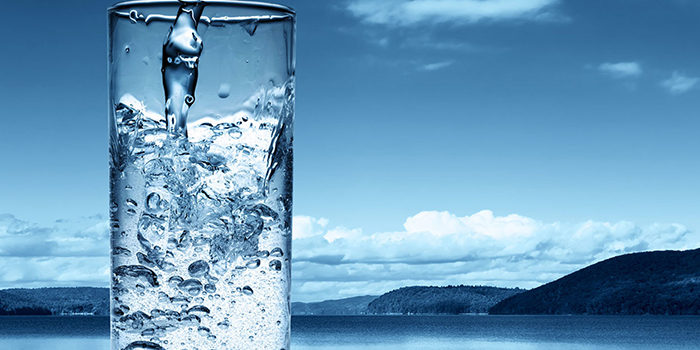


We’re talking water — arguably the most essential component of our diets. (After all, we can’t survive more than a few days without it.) It may seem like a no-brainer — just drink more water. But not all water is created equal, these 7 water facts will blow your mind:
Don’t let yourself get thirsty
With the summer heat, it’s important to make sure you stay hydrated. Our bodies are over two-thirds water. Even our bones are composed of more than 20% water. In fact, water is so important that a person couldn’t last more than five days without it. Without water, you couldn’t maintain a normal body temperature, lubricate your joints, or get rid of waste through urination, sweat, and bowel movements.
As a kid, your parents are always telling you to drink more of it. In your 20s you down one between cocktails to avoid a hangover. As you get older you notice dry skin, under-eye circles and headaches creeping up when you don’t get enough of it. Gym rats carry around huge jugs of it, models swear by it as an essential piece of their beauty routine and a lack of it may just be the reason behind your daily afternoon slump.
Not all water is created equal
Many people struggle to know which type of water is the best because the market is full of so many different types. Each one claims to have some wildly impressive additional health benefits. However, which of these claims are true and which ones are simply no more than clever advertisers stretching the truth to sell more products?
While there are industry regulations in place that are meant to keep lead and other harmful substances from contaminating the water supply, sometimes this doesn’t work. A prime example of this is the ongoing water crisis in Flint, Michigan.
Tap Water
Tap water is found everywhere from the water that flushes a public toilet to the water that comes out of your kitchen sink or cleans your glassware in your dishwasher.
Pros – Though many people shake their heads at the idea of drinking tap water over taste or safety concerns, the truth is that tap water is safe to drink across much of the U.S. That, and its free!
Cons – Public water supplies can contain pesticide residue, aluminum, and other substances you’d never put in your body. If you’re worried that the treatments performed on your water supply aren’t safe, you can always purchase a home filtration system to ensure cleaner tap water.
Mineral Water
Pulled from a mineral spring, mineral water is, as the name states, full of minerals including sulfur, magnesium and calcium—all things that are good for you.
Pros – Mineral water has some health benefits, since it provides minerals your body can’t create on its own. Many people even like the taste of it over tap water, though that’s down to personal preference.
Cons – One of the main downsides to mineral water is cost, especially when compared to tap water.
Spring or Glacier Water
Spring or glacier waters are types of bottled waters that are claimed to be bottled at the source from where the water flows—either from the spring or glacier.
Pros – In theory, spring or glacier waters should be relatively clean and free of toxins. They also contain many of the same helpful minerals found in mineral water.
Cons – Spring water could get pricey depending on how much you drink. Also, some spring water is raw, unfiltered, and untested water, which could pose potential health risks depending on what it contains.
Alkaline Water
Alkaline water has a higher pH level than normal tap water and contains alkaline minerals and negative oxidation reduction potential.
Pros – The fact that this type of water has a higher pH level has led some people to believe that it will help neutralize acid in the body, help slow the aging process, or even prevent cancer. However, there’s actually very little scientific proof of this being true.
Cons – It’s generally safe to drink alkaline water, but it could reduce stomach acidity, thereby lowering its ability to kill off harmful bacteria. Be careful not to drink too much as it could also lead to metabolic alkalosis, which could give you symptoms like nausea and vomiting.
The truth of the matter
While you may prefer a certain type of water best, generally, there’s no one type that promises greater health benefits than the others. If the water you’re drinking is clean and safe, the point is to make sure that you stay hydrated and to ensure you’re drinking enough water on a regular basis. The best way to make sure you’re constantly hydrated – with clean water – is to consider investing in a water delivery, either at home or at work.










